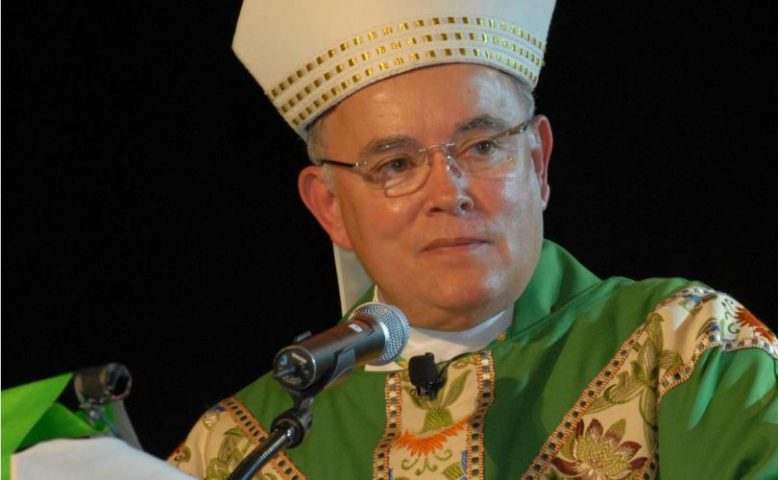Arch. Charles J. Chaput: Mr. Biden and the Matter of Scandal

Daily Scripture Reading and Meditation: The Kingdom of Heaven Is at Hand
December 5, 2020
Pfizer Warns Pregnant Women Not to Use Vaccine Because of Fertility Risks, Says Breastfeeding Problematic, by Micaiah Bilger
December 7, 2020
Philadelphia Archbishop Charles Chaput
By Charles J. Chaput, O.F.M. Cap., First Things, 12 . 4 . 20
Charles J. Chaput, O.F.M. Cap., is the archbishop emeritus of Philadelphia and author of the forthcoming Things Worth Dying For: Thoughts on a Life Worth Living (Holt).
Readers may recall that during the 2004 presidential campaign, Sen. John Kerry led the Democratic ticket. As a Catholic, Kerry held certain policy views that conflicted with the moral beliefs of his Church. This led to internal tensions among U.S. bishops about how to handle the matter of Holy Communion for Catholic public officials who publicly and persistently diverge from Catholic teaching on issues like abortion. At the time, Washington’s then-Cardinal Theodore McCarrick, along with Pittsburgh’s Bishop Donald Wuerl, had very different views from my own regarding how to proceed.
I believed then, and believe now, that publicly denying Communion to public officials is not always wise or the best pastoral course. Doing so in a loud and forceful manner may cause more harm than good by inviting the official to bask in the media glow of victimhood. What I opposed in 2004, however, was any seeming indifference to the issue, any hint in a national bishops’ statement or policy that would give bishops permission to turn their heads away from the gravity of a very serious issue. At the time, fortunately, the Congregation for the Doctrine of the Faith resolved any confusion about correct practice in these matters with its July 2004 memorandum to then-Cardinal McCarrick, Worthiness to Receive Holy Communion: General Principles. It includes the following passage:
5. Regarding the grave sin of abortion or euthanasia, when a person’s formal cooperation becomes manifest (understood, in the case of a Catholic politician, as his consistently campaigning and voting for permissive abortion and euthanasia laws), his Pastor should meet with him, instructing him about the Church’s teaching, informing him that he is not to present himself for Holy Communion until he brings to an end the objective situation of sin, and warning him that he will otherwise be denied the Eucharist. …




